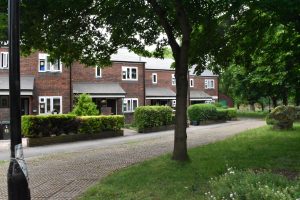
Joanne McCartney (Deputy Mayor of London) responds to local councillor
Following FLAG raising concerns with our local councillor about mobile phone snatching around Tottenham Hale station, he raised this with Joanne McCartney (Deputy Mayor of London) and her response is below:
Subject: RE: Phone Snatching Concerns Around Seven Sisters and Tottenham Hale Stations
Dear Mark,
Joanne has now received a response from TfL regarding phone thefts around Seven Sisters and Tottenham Hale Stations. Please see below –
“The safety of our customers and staff is our top priority, and we want everyone to feel safe on our network. We are very sorry to hear of an increase in phone thefts at Tottenham Hale station, and hope constituents were able to make a police report to the British Transport Police (BTP) – the policing authority primarily responsible for crime & policing enforcement across London’s transport networks. Anyone who experiences or witnesses a crime is encouraged to report it as quickly as possible, so offenders can be brought to justice. As much evidence and detail as possible should be provided to help support successful prosecutions. These reports help us to build on intelligence and inform tasking and deployment of Operations Officers and policing partners across the network to deter and prevent anti-social behaviour. In an emergency – or if the suspect is still on scene – 999 should be dialled.
Theft (including pickpocketing) is the most commonly reported crime in London, and enforcement responsibilities primarily lie with policing authorities like the Metropolitan Police Service (MPS) or the BTP. To help our customers stand vigilantly against thieves when using our services, we work closely with these services to ensure poster campaigns, social media channels, leaflets, our website, PA announcements, whiteboard posters and signage are present across the network are both up to date and accessible for every customer travelling. We are prioritising tackling mobile phone theft in and around transport hubs as a shared responsibility between a number of different organisations including the MPS, TfL, BTP and local authorities. Concerned action – both at a strategic and tactical level – is underway to tackle this ever evolving issue. This activity includes:
- High visibility and plain clothes police patrols in hotspot locations (involving local police, TfL-funded MPS Safter Transport Teams and BTP within the station footprint).
- Intelligence-sharing and investigation of offences (with a focus on organised crime).
- Crime prevention advice (vigilance and encouraging use of phone security measures) through campaigns such as Look Up, Look Out.
- Engagement with phone industry to “design out” opportunities for phones to be stolen.
- Engagement between police highway authorities and station owners on ‘designing out’ crime measures in hotspot locations.
To help improve safety on our services, we are continuing to invest in front line policing efforts. We have dedicated funding schemes for policing on rail, tube and bus services in London, and our relationship with the police allows us to work closely with them to deliver shared objectives – including tackling violence and hate crime – often coordinating deployment efforts to locations and times which are higher risk for offences. We invest more than £100 million a year in policing, which helps to fund over 2,500 officers across all modes, and equipping our teams with the ability to fully investigate any incidents where offences do take place. Over 500 TfL Operations Officers with enforcement powers receive specialist training. Our Operations Officers are uniformed and will act if they ever witness unacceptable behaviour, targeting offenders and supporting victims.
Extensive CCTV coverage across all modes of our network is also helping to tackle crime on the transport network, with 77,000 CCTV cameras currently installed. All stations and most trains are covered by CCTV, and we have welcomed the Mayor’s intention to extend CCTV coverage further to lines without this essential infrastructure over the next four years. The Mayor and TfL are currently in discussions with Government to secure a long-term funding deal to support, among other projects, the upgrade and renewal of major rolling stock. The bus network also has extensive CCTV coverage and all London bus drivers are able to speak directly with the control room and contact the police from their cab. The use of Body Worn Video for all frontline staff has also been mandated.
As another means of ensuring customer safety when travelling on the underground, we’ve worked at pace to increase mobile phone connectivity, as high quality and uninterrupted mobile coverage allows customers to report incidents wherever they are travelling. Customers are now able to access the internet through 4G and 5G mobile connectivity across the whole of the tube, DLR and Elizabeth Line network.
I trust this demonstrates the matter of public safety is of the highest importance to TfL. If constituents ever experience instances of crime on your journey, we would encourage them to inform a member of our staff or make a report to the BTP using their 61016 text messaging service. It’s a good idea to note the time of travel, and the identifying number of the carriage. If travelling on a bus, the vehicle number can be found on a sticker behind the driver’s cab and should be reported to the Metropolitan Police Service on 111.”
Joanne hopes the above is useful and that the number of incidents of phone snatching decrease.
With best wishes,
Rosa
Rosa Slater (she/her)
Research and Support Officer to Joanne McCartney AM
Labour Group
LONDON ASSEMBLY
City Hall, Kamal Chunchie Way, London, E16 1ZE


Parking Changes
Residents in Jarrow Road, Erskine Crescent and Reedham Close can apply for parking permits for the Jarrow Road CPZ.

Correspondence with Haringey: Insurance costs for leaseholders
Exchange of letters between FLAG and Haringey after our objection and complaint regarding the excessive charges for insurance in the latest service charge notices.

Leaseholders Satisfaction Survey
Following a Freedom of Information (FoI) request submitted by a resident, the council provided the results of leaseholders’ satisfaction survey done in October 2025.

Committee Meeting Minutes – 8th September 2025
Committee Minutes September 2025

Committee Meeting Minutes – 16th July 2025
Committee Minutes July 2025